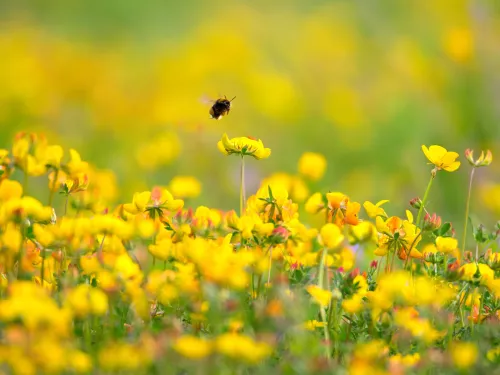
Donate £10...
...to help create crucial habitat for some of our most threatened bees
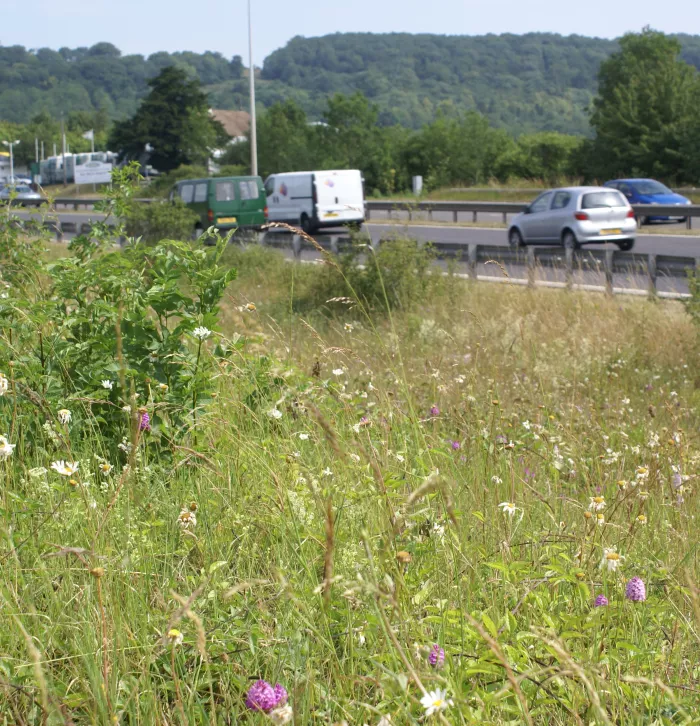
The Kent and Medway Road Verge Project, established in 1994, works to identify, protect and manage road verges which contain threatened habitats or wildlife. These are marked by special signs.
The Project is a partnership between Kent County Council Highways and Kent Wildlife Trust. It has a Road Verge Project Officer, based with Kent Wildlife Trust, who works with a dedicated team of Voluntary Road Verge Wardens to maintain the condition of the verges and monitor their wildlife interest.
Roadside Nature Reserves include a number of scarce and threatened wildlife habitats such as ancient woodland, heathland and chalk grassland. One chalk grassland verge supports so many plants that the flower and grass seed has been collected and used to help create new chalk grassland on nearby arable land.
Roadside Nature Reserves can link existing wildlife areas, helping to reconnect and restore landscape so that wildlife is no longer struggling to survive in isolation. This supports a living landscape, which benefits both people and wildlife and makes nature more resilient to future change. They provide vital wildlife corridors for many species, particularly reptiles such as slow-worms and viviparous lizards, and mammals such as badgers.
Some Roadside Nature Reserves hold locally or nationally rare animals or plants. These include green-flowered helleborine in Kemsing and the Adonis blue butterfly on a verge in Maidstone.
Many are also important for wild orchids including pyramidal orchid, man orchid and lady orchid. In summer, chalk grassland verges provide colourful arrays of flowers which attract many insects including bees and butterflies such as the chalkhill blue, brown argus, small skipper and marbled white.
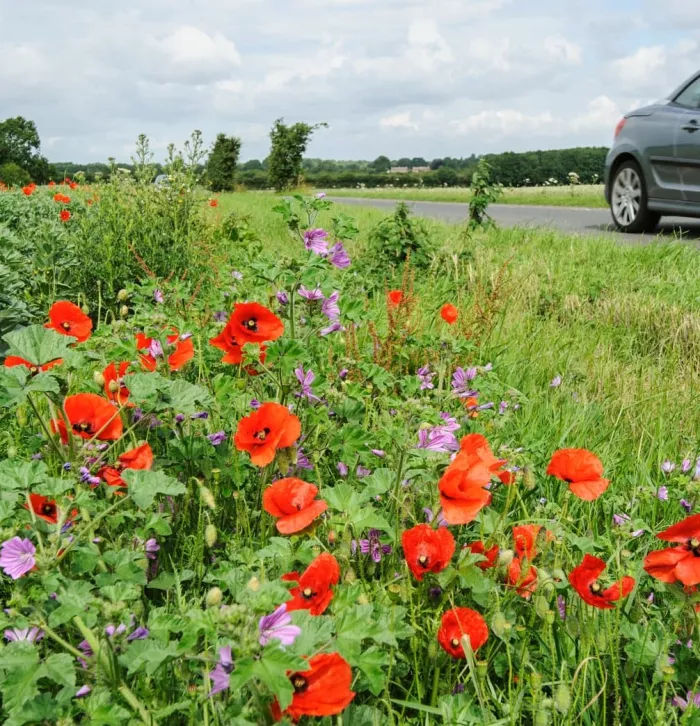
Our Road Verge Project Officer works with a dedicated team of Voluntary Road Verge Wardens to maintain the condition of the verges and monitor their wildlife interest. You can download the list of monitoring /scrub clearance task days by visiting our volunteering page.

...to help create crucial habitat for some of our most threatened bees
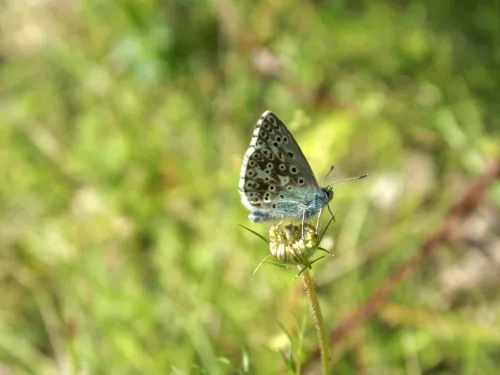
...to create corridors that connect fragmented habitats
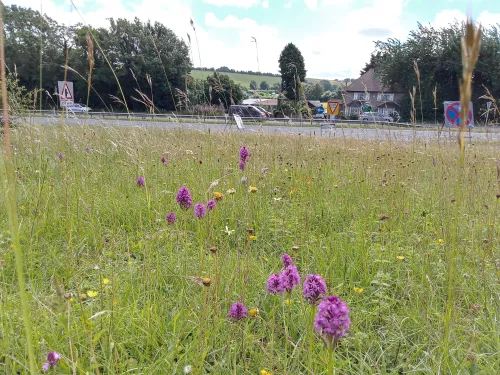
...to help us influence partners to manage thousands of miles of verges for wildlife